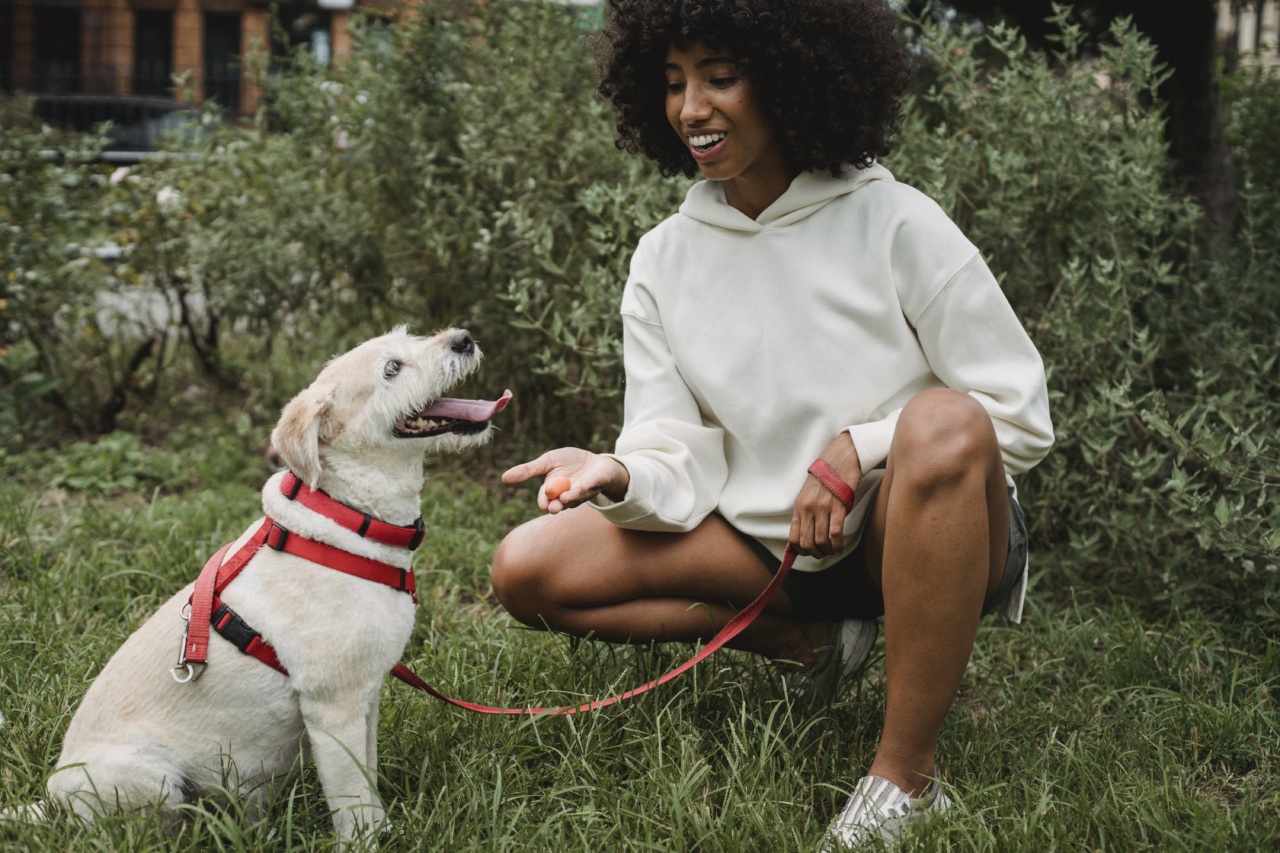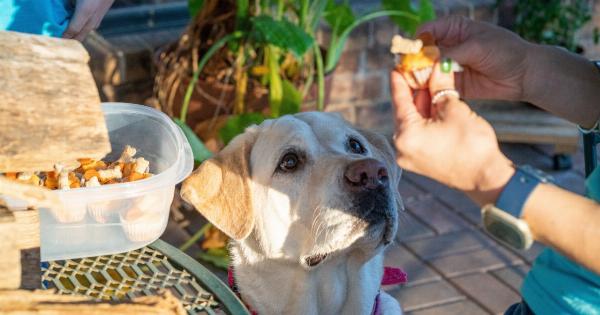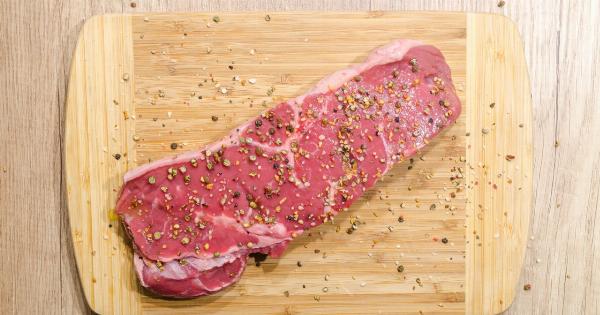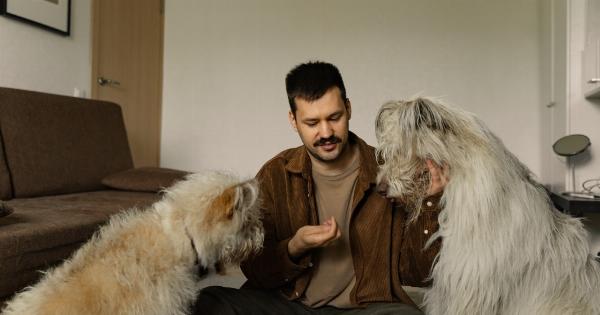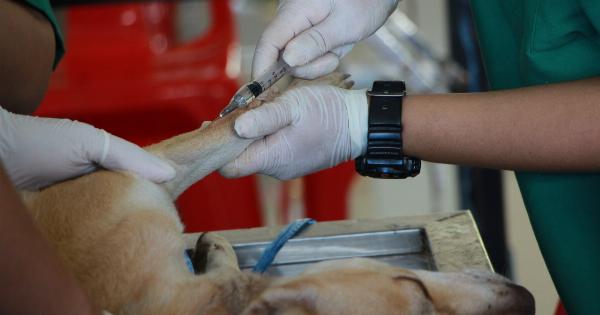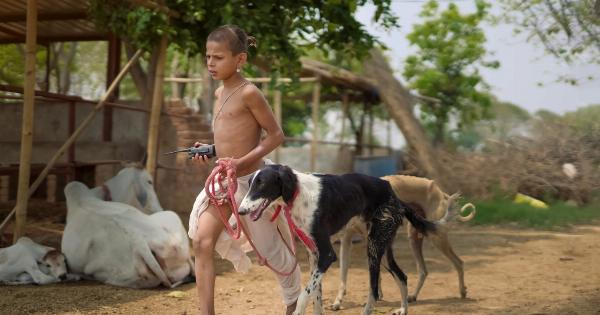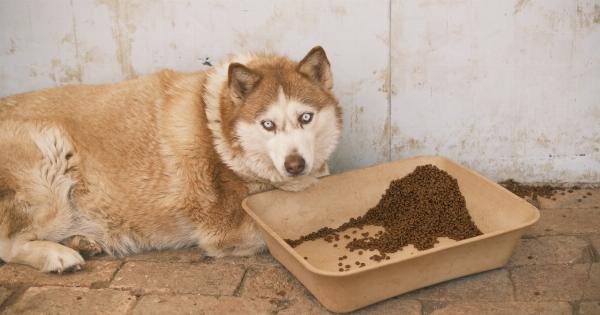Dogs are undoubtedly a part of the family, and as a pet owner, it’s only natural to want to share your favorite treats with your furry friend.
However, it’s essential to remember that dogs have different nutritional needs and digestive systems compared to humans. While giving your dog an occasional bite of human food may seem harmless, it can pose potential risks to their health and well-being.
In this article, we will explore the dangers of feeding your dog human food as treats, highlighting the importance of a balanced and dog-specific diet.
1. Accidental Overfeeding
One of the significant risks of giving your dog human food as treats is the potential for accidental overfeeding. Many human foods are calorie-dense and contain higher fat content, which can lead to obesity in dogs if provided in excess.
Obesity in dogs can result in various health issues, such as joint problems, diabetes, heart disease, and a decreased lifespan. It’s essential to be mindful of portion control when offering human food to your furry friend.
2. Digestive Upset
The digestive system of dogs differs significantly from that of humans. Dogs have shorter digestive tracts, different enzymes, and unique gut bacteria, making it challenging for them to digest certain human foods properly.
Feeding your dog foods that they are not accustomed to can lead to digestive upset, including symptoms like diarrhea, vomiting, and abdominal discomfort. It’s always best to stick to a diet formulated specifically for dogs to avoid unnecessary discomfort.
3. Toxic Foods
Certain human foods can be toxic to dogs, even in small quantities.
For example, chocolate, onions, garlic, grapes, raisins, avocados, and xylitol (a common sugar substitute) are all potentially harmful to dogs and can cause severe health issues such as kidney failure, liver damage, anemia, and even death. It’s crucial to be aware of the foods that are toxic to dogs and ensure they are kept out of reach at all times.
4. Allergic Reactions
Dogs, like humans, can develop allergies or sensitivities to certain foods. Feeding your dog human foods as treats increases the likelihood of introducing potential allergens into their diet.
Common allergens in human foods include dairy, wheat, soy, and various types of nuts. Allergic reactions in dogs can manifest as itching, skin rashes, ear infections, gastrointestinal issues, and respiratory problems.
If you suspect your dog may have an allergy, it’s best to consult a veterinarian for proper diagnosis and guidance.
5. Imbalanced Nutrition
Dog food is specifically formulated to meet the nutritional needs of dogs. It contains essential nutrients, vitamins, and minerals that may not be present in human food.
Feeding your dog an imbalanced diet rich in human food as treats can lead to nutritional deficiencies or excesses. Over time, this can have adverse effects on your dog’s overall health and may even contribute to the development of chronic diseases such as pancreatitis or kidney disease.
6. Reinforcing Bad Habits
While the occasional treat can be a great way to reward your dog or strengthen your bond, over-reliance on human food as treats may reinforce unhealthy eating habits.
Dogs are intelligent animals and quickly learn to associate certain behaviors with rewards. If they become accustomed to receiving human food as treats frequently, they may refuse their regular dog food or demand human food more often. This can make it challenging to maintain a balanced diet for your pet.
7. Dental Health Issues
Many human foods are not suitable for dogs’ dental health. For example, sticky or sugary treats can contribute to tooth decay and gum disease in dogs, just like in humans.
Additionally, some human foods, such as popcorn or bones, can pose a choking hazard or result in tooth fractures if not prepared and given carefully. Opting for dog-specific dental treats or brushing your dog’s teeth regularly with canine toothpaste and a toothbrush is generally the safest approach.
8. Behavioral Issues
Dogs have a keen sense of smell and taste. Introducing them to a variety of human foods may lead to behavioral issues such as begging, counter-surfing, and food aggression.
Dogs quickly learn that human food is often tastier and more enticing than their regular meals, which can create an unhealthy dynamic between food and behavior. It’s important to establish boundaries and reinforce positive behaviors around mealtimes to prevent these issues from arising.
9. Interference with Training
Consistency is vital when training a dog. Using human food as treats can interfere with your training efforts by confusing your pet. Dogs may find human food so rewarding that they become less motivated by their normal treats or their regular diet.
Training becomes less effective if your dog only responds to high-value treats or refuses to participate without the promise of human food rewards.
10. Encouraging Selective Eating
Feeding your dog human food as treats can lead to selective eating habits. Dogs quickly learn to hold out for the tastier human food options and may start refusing their regular dog food altogether.
This can result in a diet lacking essential nutrients and may cause weight loss, malnutrition, or other related health issues. It’s important to establish a consistent feeding routine and offer dog-specific treats to maintain your dog’s interest in their regular meals.
